PHOTOS: Saudi Arabia Allows Women Into Sports Stadium For First Time
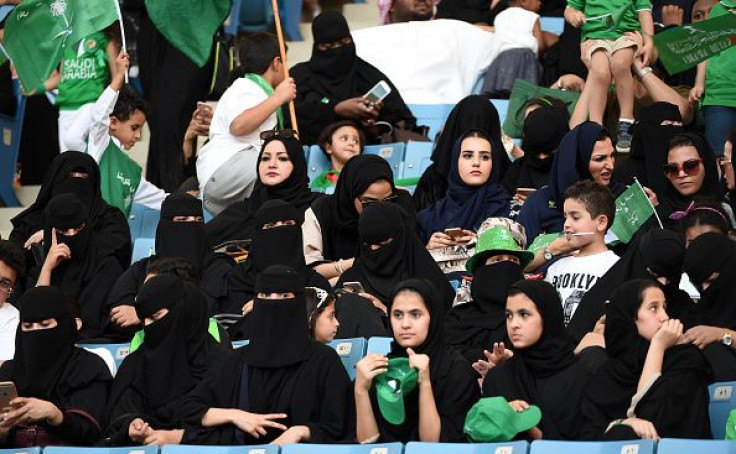
In what can be considered a historic decision, Saudi Arabia allowed its women into the King Fahd International Stadium in Riyadh for the first time, on the occasion of the 87th anniversary of its founding.
Reports stated that the women were allowed into the previously male-only venue — mostly used for football matches — with their families to watch a musical show and a play on Saudi history.
“It is the first time I have come to the stadium and I feel like more of a Saudi citizen. Now I can go everywhere in my country,” 25-year-old Sultana told Reuters. “God willing, tomorrow women will be permitted bigger and better things like driving and travel.”
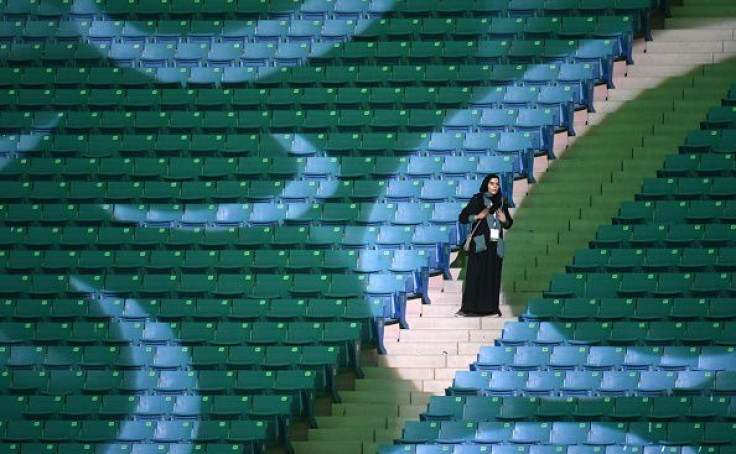
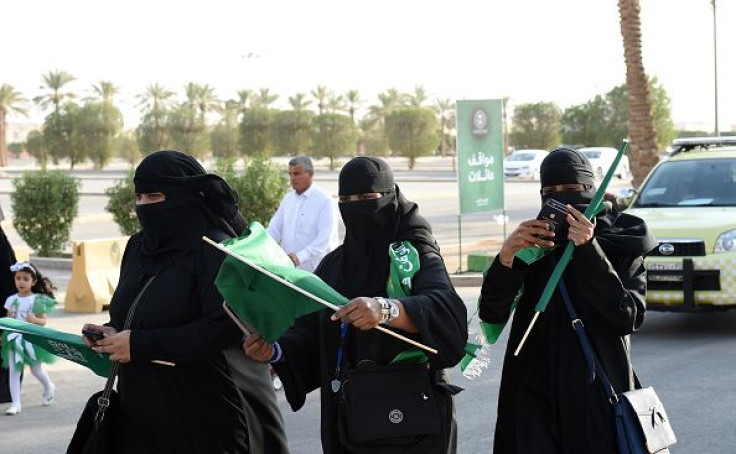
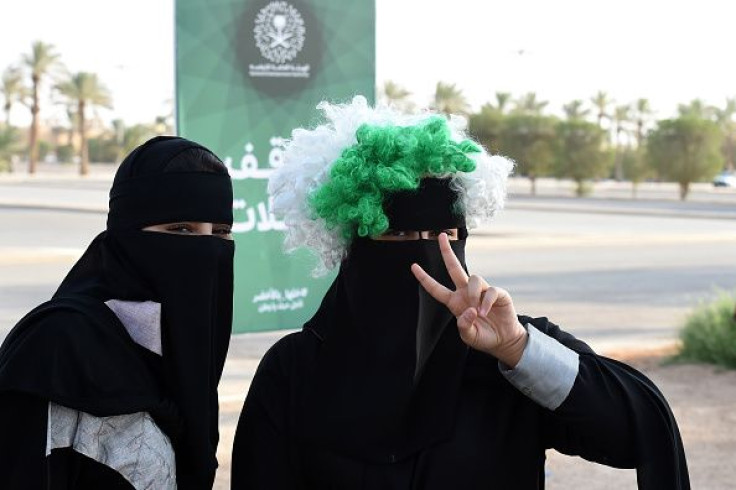
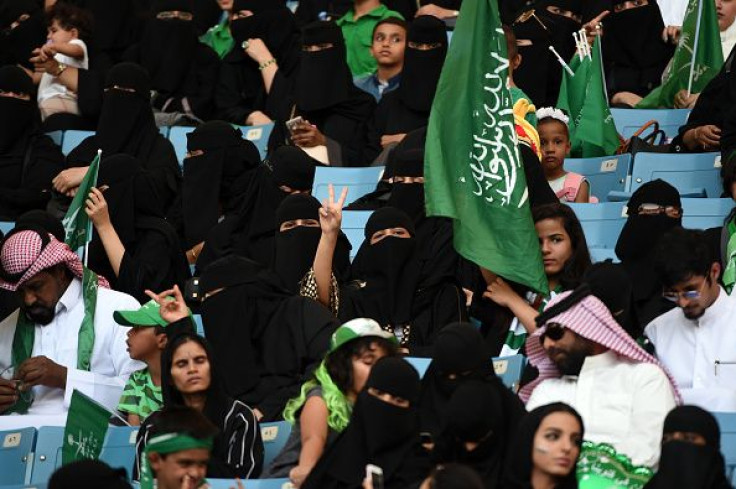
Reuters reported that the events were sponsored by the government as part of the Vision 2030 reform program launched two years ago to move the Saudi economy away from oil, create new sectors to employ young citizens and open up Saudis’ cloistered lifestyles.
The country which adheres to the austere Wahhabi brand of Sunni Islam bans gender mixing, concerts and cinemas. In the conservative country, the plan, whose goals include empowering women, promoting sports and investing in entertainment, have been criticized, the Guardian said.
Another woman, Um Abdulrahm al-Shihri, also said she hoped women would be able to attend football matches and other public festivities, to which traditionally only men are entitled to, in the future.
“You cannot imagine how happy we are today ... We feel that there is openness towards us,” she said. “Women are at all levels now - women are now (representatives) in the Shura council, women are now doctors, women are now in big positions. So why shouldn’t we join the men in things that matter to our nation?”
“We hope in the future that there will be no restrictions on our entrance to the stadium,” Um Abdulrahman added. “For many years ago I have hoped that women will be given the same rights as men.”
Issa Daghiri who attended the show with his wife and children said he was encouraged by the acceptance of families at the stadium.
In the operetta performed in the stadium on Saturday which told the story of the founding of the modern Saudi state by Ibn Saud, King Salman’s father, an unveiled woman and two dozen girls were also seen onstage.
The buildings in the capital city of Riyadh were lit up with green light for the national day and several parades took place on the street, commemorating the warrior tradition of Saudi Arabia.
"On this great occasion, we feel that the kingdom has become an important state with a pioneering role at the regional and international levels," Crown Prince Mohammed bin Salman said, according to reports.
RT stated that roughly 1.5 million Saudis were expected to attend National anniversary celebrations in 17 cities over four days.
“The kingdom will remain a bulwark for those who love benevolence, their religion and their country,” King Salman of Saudi Arabia tweeted.
© Copyright IBTimes 2024. All rights reserved.











